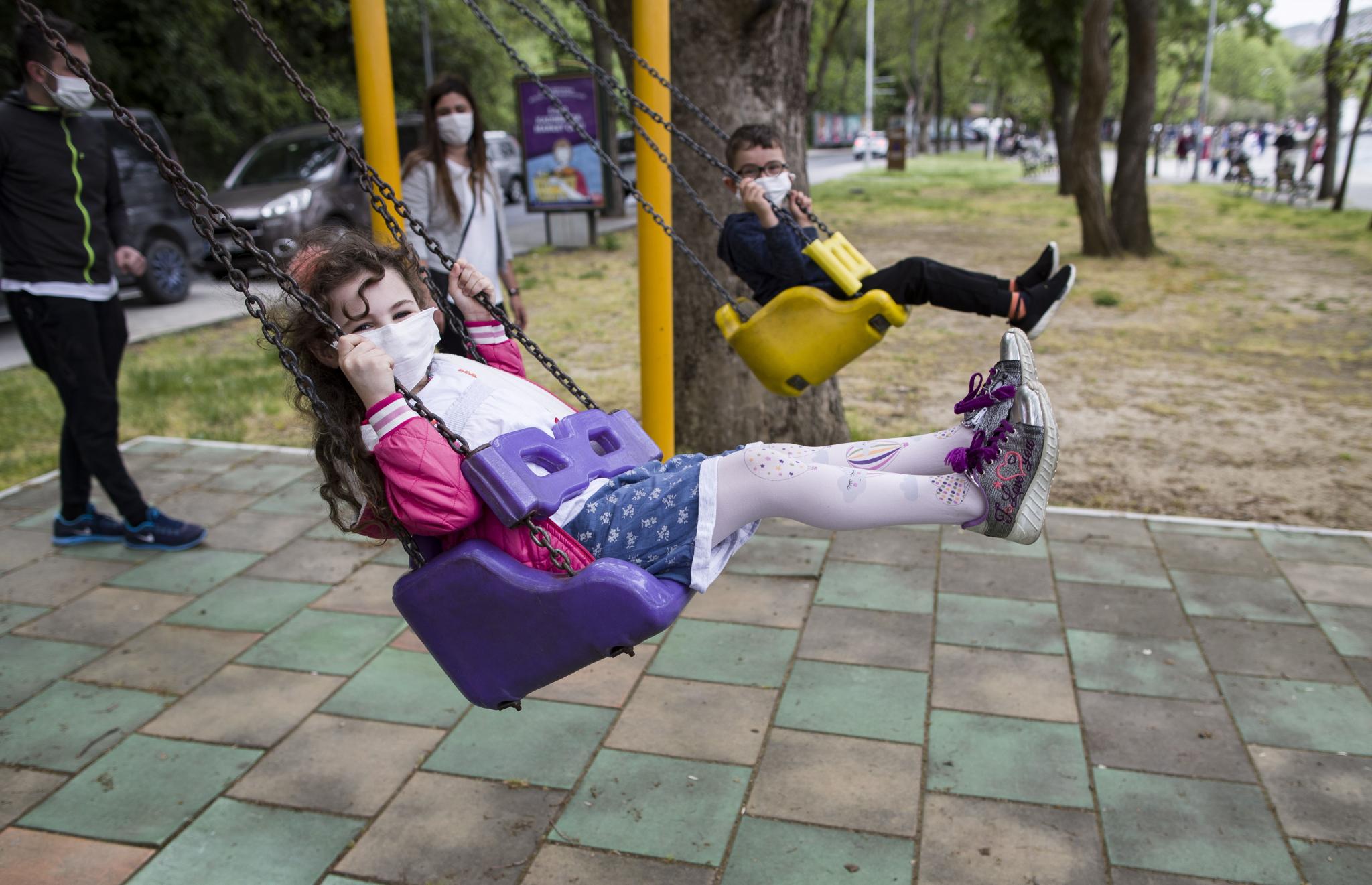When tensions run high…… and everyday skills for a more fulfilling parenting experience.
I ‘met’ Denise via Facebook and invited her to share her passion with Practical Parenting readers. Enjoy.
Communication is key when it comes to building a loving relationship with our children. As we are spending more time together, it is a great opportunity to really connect with our children and do what we can to make this situation a positive experience.
This can be difficult. We parents are juggling so many things at the same time: work, childcare, chores, our own worries and stress. It can be hard to be the calm parent we want to be.
As a parenting coach and certified facilitator of the workshop “How to Talk so Kids Will Listen”, I teach parents four basic communication skills. These simple and effective skills lead to a more peaceful family atmosphere. They are ways you can talk to your children to make them feel loved and appreciated.
The first skill is describe. Most of the language that we hear aren’t descriptions, they are evaluations. They are loaded with the speaker’s judgements and opinions. “He’s a bad boy,” or “she’s so stubborn,” are some examples. Instead of evaluating a situation or a person, describe your observations. Observations are things that you perceive with your senses. If someone else were in the room, they would agree with your statements.
Describing the situation gives others the opportunity to be more open to change. Calling a child a “disobedient” doesn’t help them. Instead, describing what they did, and its effect on others, does. “I told you it’s time to leave and you are still playing. Now I’m feeling worried because I want to be home on time.”
The second skill is express empathy. This is something most of us aren’t used to doing. When a child falls and cries, they’re told that they’re okay and to stand up. When we share how sad we’re feeling, we’re told to look at the bright side. When someone is able to show us that they understand how we’re feeling, we feel seen, heard and validated. Suddenly, we don’t feel so alone and the world doesn’t seem so bad.
Expressing empathy is something that happens in the gut. You can say all the right words, but if you aren’t able to really see things from the other person’s point of view, it may come off as insincere.
So how can you express empathy with a child? Simply listening to them and giving them your full attention is enough. If necessary, you can name their feelings or reflect back what they’re saying.
Let’s go back to the child who doesn’t want to go back home. Even though you’ve told them they can only be out for an hour, they’re not ready to leave. Instead of grabbing their arm and forcing them to come with you, you can say, “I see how much fun you’re having running around.” “It can be really frustrating to stop doing something you enjoy.” More important than what you say, is how you say it. Your tone of voice and body language will express much more empathy than the words coming out of your mouth.
A lot of times parents are afraid to acknowledge their children’s emotions because they think it means they are also accepting their behaviour. Thus the third skill: set a limit.
As child psychologist Haim Ginott said, “All feelings are valid. Certain behaviour must be limited.”
We can acknowledge a child’s feelings without accepting their behaviour. However, before setting a limit, question if it is actually necessary. Sometimes we set a limit without really thinking about it and then we find ourselves in a battle which we don’t really care about.
If you’ve decided that a limit is necessary, then set and hold it. Let’s say the child who didn’t want to go home is now running away from you. How can you set a limit then? Depending on the child’s age, try different tactics. One tactic that helps with pre-schooler is turning things into a game. I get her attention by pretending I’ve seen a lion, then we go on a safari looking for animals.
Another option is offering them choices. They can go home walking or on their scooter, or you can take this path or that one. Make sure you’re willing to actually do either of the choices and then follow through with their decision.
One more way to set a limit is to have a problem-solving conversation with them. First describe their feelings and needs, then describe the problem. After, ask the child for their suggestions and together decide on a solution. The steps are simple, but may take practice. This is why I’ve created an online workshop. This tool can be used for any situation, regardless of the issue or the age of your child. For more information, follow the link at the end of this article.
The last skill is be compassionate, with your children and with yourself. Remember we are human. We are all doing the best we can. We don’t want to be perfect parents. We want to be real parents who are able to show our children that it’s okay to fall, get up and learn from our mistakes.
To learn more about these basic communication skills and practice using them, sign up for my online workshop happening on Thursday, May 28. After attending the workshop, parents immediately saw a positive effect on their children and lessened the number of battles happening at home. Learn more about it at: http://denisesuarez.com/problem-solve/.
Denise Suarez is a parenting coach in Madrid. She helps parents enjoy parenting. Through one-on-one sessions, parents let go of frustration, guilt and anger and embrace calm, confidence and love.


No comments
To be able to write a comment, you have to be registered and logged in
Currently there are no comments.